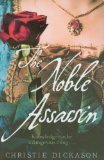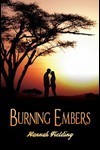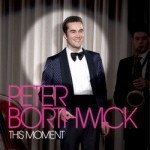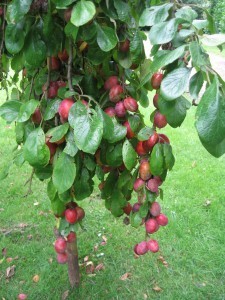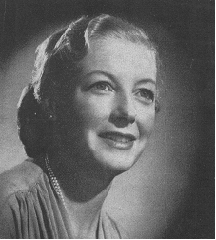Hannah Fielding's Blog, page 142
November 23, 2012
Best quotations on reading
Every writer is first and foremost a bookworm. Reading comes first, then comes the desire to create something that will give others pleasure and pause for thought.
Growing up, my house was full of books, and both my parents were keen to instil in me an appreciation of great literature. No sooner could I decipher the letters on the page than I would devour books – poetry, classics and, later, in my teens, more commercial fiction, particularly romance. Books represent magic and escapism, but also a means to interpret the world. They have always been for me a great source of comfort, and I am bereft if I do not have a book to read.
Of course, my love of books is not unusual; a whole world exists of bookworms and bibliophiles. Today, I thought I would share for fellow readers, some of my favourite quotes on the subject. Do add any you like to the post if you’d like to share.
“To learn to read is to light a fire; every syllable that is spelled out is a spark.” Victor Hugo
“Choose an author as you choose a friend.” Sir Christopher Wren
“A man ought to read just as inclination leads him, for what he reads as a task will do him little good.” Samuel Johnson
“In the highest civilization, the book is still the highest delight. He who has once known its satisfactions is provided with a resource against calamity.” Ralph Waldo Emerson
“Every reader finds himself. The writer’s work is merely a kind of optical instrument that makes it possible for the reader to discern what, without this book, he would perhaps never have seen in himself.” Marcel Proust
“No entertainment is so cheap as reading, nor any pleasure so lasting. She will not want new fashions nor regret the loss of expensive diversions or variety of company if she can be amused with an author in her closet.” Lady Montagu
“Once you learn to read, you will be forever free.” Frederick Douglass
“No matter how busy you may think you are, you must find time for reading, or surrender yourself to self-chosen ignorance.” Confucius
“We read to know we are not alone.” C.S. Lewis
“Give me a man or woman who has read a thousand books and you give me an interesting companion. Give me a man or woman who has read perhaps three and you give me a dangerous enemy indeed.” Anne Rice
“Books are the quietest and most constant of friends; they are the most accessible and wisest of counselors, and the most patient of teachers.” Charles William Eliot
“Do not read, as children do, to amuse yourself, or like the ambitious, for the purpose of instruction. No, read in order to live.” Gustave Flaubert
“Books are a uniquely portable magic.” Stephen King
“It is a good rule after reading a new book, never to allow yourself another new one till you have read an old one in between.” C.S. Lewis
A book reads the better which is our own, and has been so long known to us, that we know the topography of its blots, and dog’s ears, and can trace the dirt in it to having read it at tea with buttered muffins. Charles Lamb
A book is like a garden carried in the pocket. Chinese Proverb
“I’ve never known any trouble that an hour’s reading didn’t assuage.” Charles De Secondat
“The things I want to know are in books. My best friend is the man who’ll get me a book I [haven’t] read.” Abraham Lincoln
“Children are made readers on the laps of their parents.” Emilie Buchwald
“There is more treasure in books than in all the pirate’s loot on Treasure Island.” Walt Disney
November 22, 2012
Book review: The Noble Assassin by Christie Dickason
From the blurb:
A thrilling account of one of English history’s most daring women, who risked everything in the dark days leading up to the Civil War.
Court beauty, Lucy Russell, Countess of Bedford, feels frustrated by life with her weak husband. Poverty stricken, they are confined to their country estate and excluded from court life in London after he disastrously allies himself against Elizabeth I.
Now, some years later, James I is seated on the English throne. His daughter, Elizabeth Stuart, former confidant of Lucy, has married the King of Bohemia. The precarious political situation in Europe is fraught, setting father against daughter. When Elizabeth and her husband are deposed, exiled and forced on the run, James is in no mood to come to Elizabeth’s aid.
Hearing of Elizabeth’s predicament, Lucy sees an opportunity to re-establish the Bedford name and offers herself as a peace envoy between the two parties. Setting out on a daring mission across the channel, Lucy discovers she is being manipulated by unscrupulous men, not least the calculating and darkly handsome Duke of Buckingham.
Can Lucy tread this most dangerous path, or by risking everything, will she pay the ultimate price?
I love historical fiction, particularly that set in Britain, and so was keen to read this novel, especially when I discovered that the author worked with the Royal Shakespeare Company for many years – what a wonderful job, and such a chance to immerse oneself in period stories.
The novel is beautifully written and expertly researched. I particularly enjoyed reading the historical information included at the end of the book, on characters, settings and events. I found myself entirely relaxed that the author knew her facts inside out, and had crafted them carefully into an engaging, realistic tale. Lucy is a heroine whom it is impossible not to like: strong, courageous, intelligent and altogether human in her inner struggles. A vein of tragic grief provides a poignant undercurrent for the book, set up in the very first pages as Lucy contemplates suicide, and the other emotional pull which I found powerful is Lucy’s fierce loyalty to her queen, and in many ways surrogate daughter, Elizabeth Stuart, The Winter Queen.
There is love in this story – between Lucy and the poet John Donne – but I’m not sure I would class this as romantic historical fiction because to me the love element was not a major part of the story. Still, it echoes through.
For me, the key strength of the book is the care that the author takes to let us into Lucy’s thoughts and feelings. There is plenty of pace, but also plenty of attention given to how Lucy perceives events. I enjoy books that contain this emotional dimension, and I think that’s what makes this book stand out as memorable.
The Noble Assassin is available now from Amazon; click on the book cover below to visit the store.
November 21, 2012
Fall in Love All Over Again Giveaway Hop: Win a copy of Burning Embers
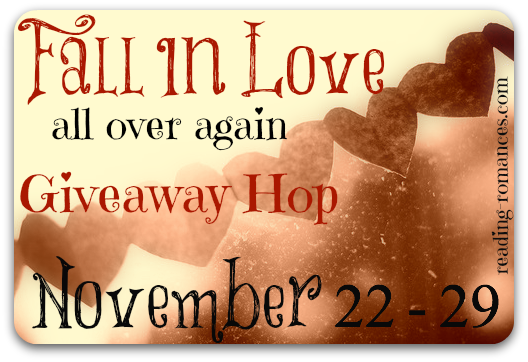
I’m delighted to be participating in Reading Romances’ Fall in Love All Over Again Giveaway Hop! There are lots of participants giving away romance books, so be sure to check out the full hop.
I’m giving away two copies of my novel Burning Embers plus two CDs by the fabulous jazz singer Peter Borthwick. Worldwide entries are welcome. To enter, simply comment on this page and tell me why you’d like to read Burning Embers.
Good luck!
Hannah x
November 20, 2012
A mouth-watering sight
November 19, 2012
Writing a book in a month – a recipe for madness or creative genius?
As you may be aware, November is NaNoWriMo: National Novel Writing Month (see http://www.nanowrimo.org/). All over the world, writers – many of them with families to tend to and day jobs to hold down – have been furiously penning their novels, with the aim of reaching a 50,000-word total by the end of the month. They’re exhausted, they’re consumed by the process, but they’re determined to get the bare bones of their books done on paper right now.
It’s a winning formula, and many authors who’ve gone on to publish books successfully happily confess that the novels began during NaNoWriMo. The project allows authors the opportunity to really immerse themselves in the book and push through a short burst to break the back of the job of writing a novel. For many authors, NaNoWriMo is the very antidote to procrastination, and it can move them past writing blocks and doubts that are standing in their way. In addition, there is a school of thought that advocates writing a first draft quickly, without allowing the inner editor to have a say; they believe that, creatively, this can lead to the best work.
But is this kind of speed writing a recipe for madness or for creative genius? At the end of the month, would you have the foundations of a novel to be proud of, or incoherent ramblings – the fruit of a burnt-out, pressurised mind?
Personally, I don’t think I would feel comfortable writing quite that quickly. I like to have the time to do background reading or take a walk on the beach to clear my mind mid-chapter. But I do enjoy being able to immerse myself in my writing, and I can see the benefit of letting the writing flow, and then coming back to edit later on. I think the keys to success must be meticulous planning of the narrative in advance – of which I am always a proponent – discipline during the month, and then a willingness to revise and rewrite and edit extensively.
When you have an idea for a novel and a plan, the task of writing can stretch out before you like a daunting mountain to conquer, and getting something, anything, down can do much to assuage those feelings of worry. But I think once you’ve proven to yourself that you can write – you can write a number of words that equate to a book – you can be kinder to yourself.
Life informs writing. NaNoWriMo is deliberately only a month long, and most participants write on top of the activities of their ordinary live. But full immersion for too long, and I think writing may become affected. We write about people, about the world. And if we exit the world for too long, shutting ourselves away to write about our impression of the world, locked away in our minds, then we risk becoming too detached and that isolation coming through in the writing. Balance, then, is key. A little life, a little writing. Steady as she goes.
If you’ve been participating in NaNoWriMo, I offer you hearty encouragement – not long to go now; go for it! Ultimately, any impetus to writing is something to applaud and celebrate.
November 17, 2012
A Kentish recipe: Gypsy tart
I am a keen cook, and as well as cooking with local produce I like to try out recipes that are native to the areas in which I live: Kent in England and the Var in France. Today I’m sharing with you a wonderfully simple recipe for a classic Kentish dessert called gypsy tart.
So the story goes, the recipe was invented by a woman who wanted to offer food to gypsy children playing near to her home. But her cupboards were bare, bar a pie crust, evaporated milk and brown sugar. Put them together and what have you got? A sweet, delicious dessert.
Many people remember this pudding from school days. It’s economical and quick and easy to make, hence it is up there with the likes of ram roly-poly and spotted dick as a classic English dessert.
Ingredients
300ml evaporated milk, refrigerated until cold
260g muscovado sugar
1 x 10-inch pre-cooked shortcrust pastry case – store-bought or home-made
Pre-heat the oven to 200 degrees C.
Whisk the milk, and gradually add in the sugar. Keep whisking for ten to fifteen minutes until your arms ache! The mixture will thicken and turn a coffee colour.
Pour into the pastry case and bake for ten minutes.
Remove from the oven. The centre may still be wobbly, but it should firm up. Leave to cool for several hours, or ideally in the refrigerator overnight.
Serve cold with ice cream, clotted cream or whipped cream.
November 16, 2012
Favourite writer: MM Kaye
Mary Margaret ‘Mollie’ Kaye (1908–2004) has been one of my favourite writers since I read her worldwide best-seller The Far Pavilions in the early 1980s. She has been an inspiration to me in my writing, because, like me, she was a traveller at heart and she wrote wonderfully descriptive stories set in exotic locations that really transport you to far-off lands.
She was born in Simla, India, where she set The Far Pavilions, and was then sent to boarding school in Britain to be Anglicised. When she married her husband, who was in the British Army, she followed him to Kenya, Zanzibar, Egypt, Cyprus and Germany. Her obituary in the Guardian outlines what life was like abroad for her then:
Removed to a small hill station, she bore a daughter, unaided by a drunk medical orderly. It was a five-day labour; a tiger ate a water buffalo under her verandah; the medic shot the tiger; Kaye caught malaria from mosquitoes in the watertank. “It could only happen in India.”
She wrote several books, of which The Far Pavilions is the most famous. It has been called an Indian Gone With the Wind and her daughter said ‘The Far Pavilions was my mother’s love letter to India’. The book was made into a television drama and a musical for the stage that played at the Shaftesbury Theatre, London, in 2005. Sadly, MM Kaye had died the year before and never saw this adaptation.
When I came across this quote from MM Kaye in her children’s book, The Ordinary Princess, I knew I had found a soulmate:
This story was written many moons ago under an apple tree in an orchard in Kent, which is one of England’s prettiest counties . . . I had read at least twenty of the [fairy tales] when I noticed something that had never struck me before – I suppose because I had always taken it for granted. All the princesses, apart from such rare exceptions as Snow White, were blond, blue-eyed, and beautiful, with lovely figures and complexions and extravagantly long hair. This struck me as most unfair, and suddenly I began to wonder just how many handsome young princes would have asked a king for the hand of his daughter if that daughter had happened to be gawky, snub-nosed, and freckled, with shortish mouse-colored hair? None, I suspected. They would all have been of chasing after some lissome Royal Highness with large blue eyes and yards of golden hair and probably nothing whatever between her ears! It was in that moment that a story about a princess who turned out to be ordinary jumped into my mind, and the very next morning I took my pencil box and a large rough-notebook down to the orchard and, having settled myself under an apple tree in full bloom, began to write . . . the day was warm and windless and without a cloud in the sky. A perfect day and a perfect place to write a fairy story.
How this reminds me of myself, writing love stories in my own Kentish orchard!
On MM Kaye’s website at www.mmkaye.com you can find out more about this great writer. I very much enjoyed her advice to authors, honest and straightforward:
No one can advise you how to write a book. You either can or you can’t, and the only way is to find out. And the only way you can do that is, in my opinion, to acquire the necessary tools (typewriter, pen, pencil, or whatever you prefer to use; paper, a dictionary if you can’t spell – I can’t! – and so on) and then, sit down and start writing. There is no other way. Too many would-be writers seem to think one must wait for inspiration. But if I had, I’d never have written a line. You get it all right; but not all that often, and only while you are pegging away at a book or a short story or whatever. It comes as you are writing – not sitting waiting for it. Or at least, that has been my experience.
Such a fascinating and inspirational lady. I do recommend her books to you if you like classic, epic stories and to learn of other cultures and settings.
November 15, 2012
Book review: Be My Prince (The Royal Trilogy #1) by Julianne Maclean
In the summer of 1814, St James’s Palace is host to His Royal Highness Prince Randolph of Petersbourg, and it is no secret that at the end of his stay the prince intends to take his future queen home with him. Deeply romantic, he wants to marry for love and not for duty. Lady Alexandra Monroe attends the royal introductory reception with the aim of winning the heart of Prince Randolph, but she is not alone:
Honestly. This whole evening was nothing short of a bloodthirsty cutthroat competition. All the ladies were trussed up in their best gowns and jewels, eyeing each other with icy rancor. If only we had swords and muskets, then the portrait would be complete.
It is not Randolph who captures Alexandra’s heart that night, however; rather, it is his younger brother, Prince Nicholas. He is also enchanted by her, even in the face of her honesty that she wants to marry his brother. Nicholas manipulates the situation to court Alexandra, and she cannot help herself from falling for him, leaving her torn between love and her duty to her family.
She turned and made a solemn vow not to spend another moment dreaming about Prince Nicholas, for he was the most dangerous of men. He had the power to divert her from her goal, and she could not allow him to do that. No matter that he fired her blood and made her body yearn to be touched. His brother made her feel no such things, and yet it was he whose children she must bear.
But this book is about deception, and whilst Alexandra believes she is hiding the biggest secret – the fact that she is actually the true blood heir to the throne of Petersbourg – Randolph has his own secrets too. When the truths are revealed, can Alexandra ride out the path to true love and return her bloodline to the throne?
The main characters in this book are really strong individuals; all stubborn, and ready to do whatever it takes to get what they want. It is written from several characters’ points of view, explaining all of their competing desires, so you truly understand why each person has behaved the way he or she has – in fact, at times it is difficult to decide whose side you are on!
What I really enjoyed about this book is the way it is written – the realism that mixes humour and serious emotion means that you really connect with the way character feels:
Yet she was a woman who had suffered a broken heart that very morning, and unfortunately, rationality had very little to do with anything. She simply needed to boil over and boil very hard.
Obviously the festival of pleasures–and all the dancing he’d done in Vienna–had agreed with him. He had never looked better. She wished she could hate him for it, but all she felt was a mad desire to dash into his arms, rip that coat off his body, and make love to him right there on the floor. Thankfully, however, more sensible thoughts took over, and she wondered what would happen if she threw a brandy decanter at his head.
It is also refreshing that the book does not end when Alexandra finds her true love. The fact that we follow that relationship past the heady climax of finally finding each other, and each getting what they most desired, was exciting; I was intrigued – there’s still almost half the book left beyond where another might have stopped. What followed was a captivating story of the after-effects of the secrets and lies and misunderstandings that had brought them together, when the lovers struggle to forgive and trust again. It wasn’t clear if they would re-surface together, or if their relationship would simply self-combust. The suspense left me quickly turning the pages and willing them on, because despite everything I wanted both Alexandra and Prince Randolph to have their happy endings.
This book is the first in the royal trilogy, and it cleverly introduces the characters that will be the focus of the next two books without taking away from this current story at all. In fact, I am most intrigued to read the next two – the first of which was released just last week (Princess in Love) – to see what happens next.
Be My Prince is available now from Amazon; click on the book cover below to visit the store.
November 13, 2012
A rose by any other name…
November 12, 2012
An interview with Rafe de Monfort, hero of Burning Embers
For those of you who have read Burning Embers, today I thought I would explore the hero, Rafe, in a little more depth. I’ve interviewed him soon after Coral moves to Kenya and first meets Rafe. I hope you enjoy learning more about this character.
1. Good afternoon, Rafe. Can you tell us a little about yourself?
I was born in French Guinea, but spent most of my childhood in France. I moved back to Africa, to Kenya, when I was an adult, and now I am an entrepreneur. My main business ventures are my nightclub, The Golden Fish, and my sisal plantation. Today it is one of the leading sisal plantations in Kenya, I am proud to say. Most of the ropes and agricultural twine in Kenya are made from our plants, as well as insulation for houses and countless other things.
2. What are your dreams for the future?
As the French poet Anatole France put it, ‘We chase dreams and embrace shadows’. I don’t think much of the future. For a man like me, there is little point looking forward, laying plans, chasing dreams. I live in the now; in the shadows, I suppose you could say. I focus on my business activities mostly.
3. Your nightclub, The Golden Fish, is a favoured destination for Mombasa society. Tell us about the club – why you established it, what you love about it.
It’s a little slice of paradise – exotic, luxurious, decadent. The setting, on a cliff overlooking the ocean, is key to the dramatic effect. But the biggest draw is the dancing. I hire the very best sensual dancers to entertain visitors. Morgana, my lead dancer, can captivate a room within two bars of a song and a wiggle of her hip. I love to see people entertained, and stepping outside of mundanity to be transformed to another plain infused with beauty and poetry and sexuality. It’s spellbinding, magical.
4. You have a pilot’s licence and also fly hot-air balloons. What do you love about being in the air?
The freedom, first and foremost. The air is so fresh and exhilarating, and you feel akin to the birds. The view is a huge draw – to be able to look down on Africa, laid out before you in all its majesty, is a real privilege. You see parts of the wild country you could not see on foot, and you catch glimpses of animals running free, unhampered by fear of man. It’s simply breathtaking, and very humbling. As when, just a few years ago, the Americans first put a man on the moon, and we saw pictures of our planet from space, from the air, you look down on the land and realise you are just a small, insignificant part of great and mighty Nature.
5. A little bird tells me you’re a talented painter. From where did your love of painting originate?
My mother taught me, when I was a small boy. She painted, and we would spend days together on the beach, happily immersed in committing the ocean to canvas. In the evening, my father and our staff would judge our artworks and the winning painter would receive a prize. They were happy, carefree days, and I suppose painting transports me back to them.
6. You’ve previously led hunting expeditions. What are your views on hunting in Africa?
I don’t hunt any more. Hunting is no longer a fair sport. Too many bloodthirsty poachers who kill game for trophies, regardless of whether the animal is rare or not. I don’t want to see herds of animals depleted out of man’s selfishness and desperation to prove himself the stronger species.
7. How far do you integrate with native Kenyan cultures, such as that of the Maasai people?
With respect, is the simple answer. Their ways are different to our own, but no less informed by experience, skill and intelligence. If you show them respect, they will reciprocate. You don’t have to believe in all their customs – the superstition, for example, does not faze me – but you have to be mindful of the fact that these people have trodden the land of African much longer than my ancestors and me.
8. Sadly, you’re a widower. Are you open to the thought of falling in love again someday?
I don’t see that this is any of your business. Suffice it to say that I am not a lovestruck teenager keen to ride off into the sunset with a damsel on the back of my horse. Love is for those who have not seen life as I have, and been burned by it. Companionship and someone to scratch the lustful itch is the most I expect to achieve.
9. I hear a rather fetching young lady has moved into the neighbouring plantation, the daughter of your friend Walter Sinclair. Might sparks fly, do you think?
Absolutely. She seems very feisty, and very headstrong, and determined to be independent. She is young, but appears to be kind of heart and gracious. I am looking forward to getting to know her better. I think I shall invite her to dinner followed by an evening at my nightclub…


